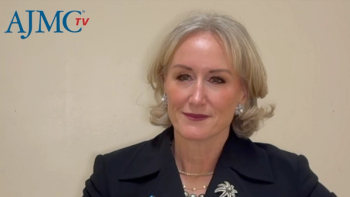
HRT Associated With Higher Breast Cancer Risk, Study Finds
A recent study published in The BMJ suggests that the increased breast cancer risk varies by hormone replacement therapy (HRT) type, but that combined treatments and longer duration might lead to the highest risk.
The nested case-control study aimed to assess the
In all, the data included 98,661 breast cancer patients who were newly diagnosed between 1998 and 2018 and 457,498 women who did not develop breast cancer as a the control group. The general practices included had all contributed data for at least 3 years, and patients with fewer than 3 years of medical records, as well as any with already diagnosed breast cancer or who had undergone mastectomies by the time they entered the cohort, were excluded.
Researchers assessed the risk of HRT based on type (estrogen only or estrogen-progestogen), recent or past use (< 5 years ago or ≥ 5 years ago), and short-term use vs long-term use (< 5 years vs ≥ 5 years). They also adjusted for various lifestyle and medical history factors, including “those that might have affected a doctor’s prescribing decision for HRT or might have affected a woman’s decision to take HRT or are associated with an increased breast cancer risk.”
The breast cancer cohort had 33,703 patients (34%) who had ever undergone HRT, compared with 142,391 participants in the control group (31%). Of those patients, 8860 (26%) in the breast cancer cohort and 42,799 (30%) of the controls had been treated with estrogen-only therapy. In the breast cancer cohort, 24,843 (74%) of HRT patients received estrogen-progestogen therapy, compared with 99,592 (70%) in the control group.
The study found that most HRT drugs were associated with an increased risk of breast cancer (adjusted odds ratio [aOR], 1.21; 95% CI, 1.19-1.23). Combination estrogen-progestogen treatments were mostly responsible for the increase (aOR, 1.26; 1.24-1.29). Estrogen-only therapy had a relatively low increased risk [aOR, 1.06; 1.03-1.10).
Long-term estrogen-only therapy and estrogen-progestogen therapy were both associated with increased risks of breast cancer in recent users (aOR, 1.15; 1.09-1.21 and aOR, 1.79; 1.73-1.85, respectively). They found that norethisterone had the highest risk (aOR, 1.88; 1.79-1.99), and dydrogesterone had the lowest (aOR, 1.24; 1.03-1.48).
Patients who had received long-term estrogen-only treatment in the past did not have a statistically significant increased breast cancer risk, and the same was evident in past short-term treatment with estrogen-progestogen therapy. But past long-term estrogen-progestogen treatment was associated with continued increased risk (aOR, 1.16; 1.11-1.21).
The risk was more pronounced in older women. In raw numbers, the findings suggest that between 3 (in younger women) and 8 (in older women) extra cases per 10,000 women years would be expected for estrogen-only HRT. For estrogen-progestogen users, they expect between 9 and 36 extra cases per 10,000 women years. For past estrogen-progestogen users, the findings suggest between 2 and 8 extra cases per 10,000 women years.
This study was observational and therefore does not establish cause, and the authors wrote that more research could help establish the associated risk of HRT by tumor type. The authors noted that their findings are largely in line with those of a
Overall, the study’s findings confirm that the extra breast cancer risk associated with HRT can largely be attributed to combined estrogen-progestogen therapy, the authors concluded. They also noted that 2 rarely prescribed drugs, dydrogesterone and tibolone showed low increased risks.
“Our results add more evidence to the existing knowledge base and should help doctors and women to identify the most appropriate HRT formulation and treatment regimen, and provide more consistently derived information for women’s health experts, healthcare researchers, and treatment policy professionals,” they wrote.
Reference
Vinogradova Y, Coupland C, Hippisley-Cox J. Use of hormone replacement therapy and risk of breast cancer: nested case-control studies using the QResearch and CPRD databases. BMJ. Published online October 28, 2020. doi:
Newsletter
Stay ahead of policy, cost, and value—subscribe to AJMC for expert insights at the intersection of clinical care and health economics.








